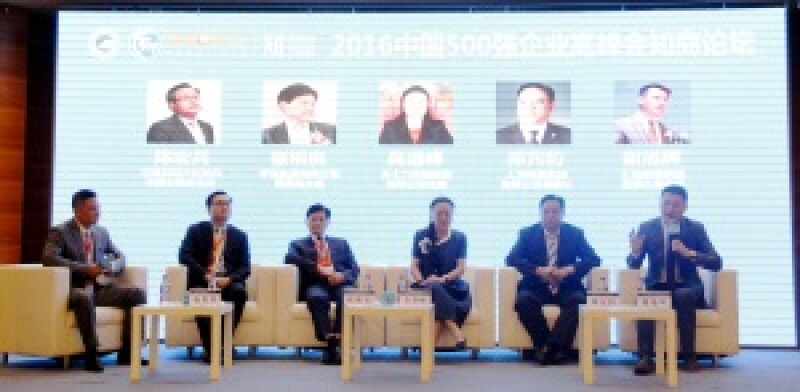
“Intellectual property is the core competency of any companies seeking development and innovation in China,” Yuehong Liu, deputy director general of Hunan Provincial Intellectual Property Office (IP Office), said in his opening speech to kick off the 2016 China Top 500 Enterprise Summit.
This is the 16th year of the annual summit, which took place in Changsha, Hunan Province in August this year.
During the summit, Hunan IP Office announced the signing of a strategic cooperation agreement with WTOIP, a Chinese IP trading platform. WTOIP will assist the local IP Office to build the IP online trading platform and offer local enterprises services including IPR verification, freedom-to-operate searches and IP transactions.
China is adjusting to a sharing economy, which implies individuals are able to share assets owned by someone else. Yuehong Liu said the sharing economy is driven by the booming development of internet and technology.
He also observed that cutting-edge technologies bring new opportunities and challenges to IP protection in China, which echoes to the theme of the summit: “How will enterprises promote invention and innovation under IP law and sharing economics?”
Panel discussion
Representatives from WIPO and leading Chinese companies also shared their experiences of protecting IP in China.
Hongbing Chen, Director of WIPO’s office in China, explained the key to protecting innovation and invention is to build a healthy ecosystem that requires “an established judicial system, business environment, education, investment in R&D, and infrastructures”. Chen said intellectual property is a benchmark for input and output for invention. “The stronger IP protection is, the higher input-output ratio will be, and thus more companies are motivated to invent new technology”, he said.
“What is the key to IP protection? It’s the legal awareness,” said Yuanbao Zheng, chairman of People Electric Appliance Group. This means train the employees and board members, said Zheng.
Xuhui Xie, chairman and president of WTOIP, said the means of IP protection and utilization changed under sharing economics: “Companies have to be ready for this trend - invest in and plan IP strategy as early as possible.”
To wrap up the summit, Jiming Wang of China Enterprise Confederation announced the winners of the 2016 Top 500 Chinese corporations of the year. The evaluation is based on company’s gross revenue in a year.
Top 10 Chinese companies include State Grid Corporation of China, China National Petroleum Corporation, China Petrochemical Corporation, ICBC, China Construction Bank, China State Construction Engineering, Agricultural Bank of China, Bank of China, China Ping An Insurance and China Mobile.










